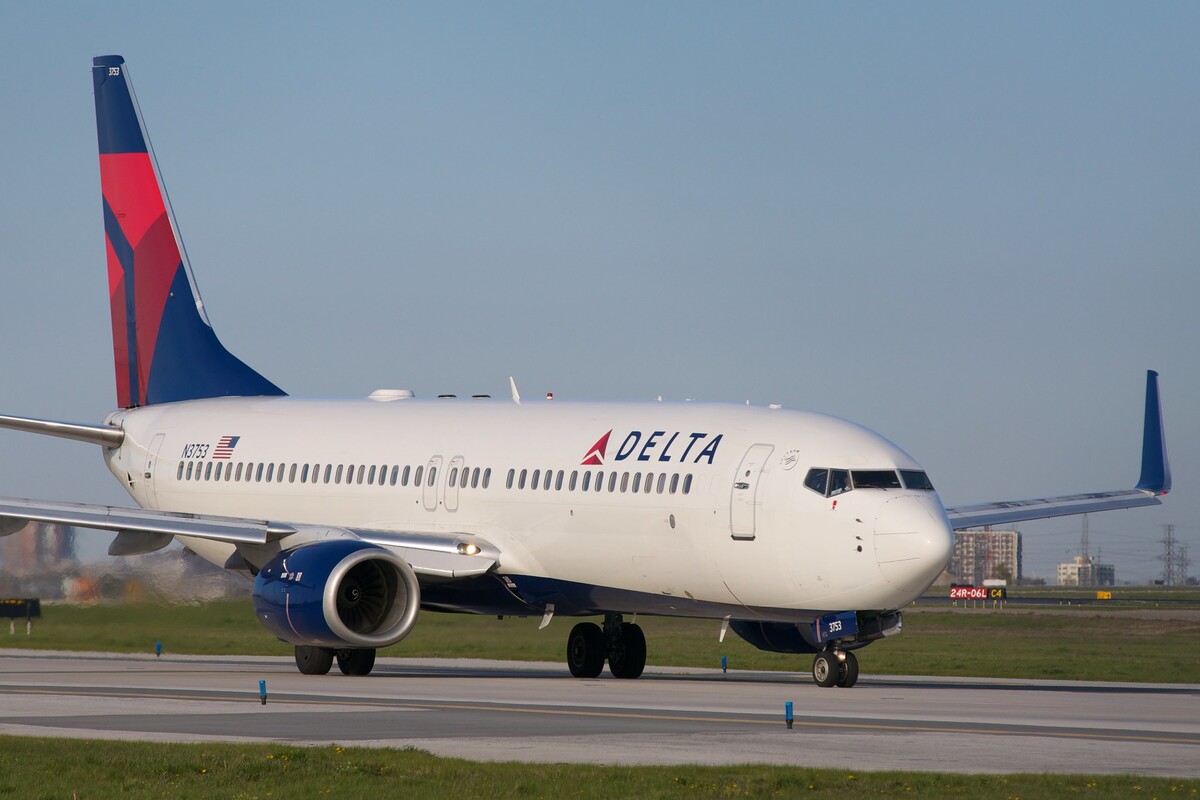Skift Take
Delta, which has become one of the largest e-commerce retailers, said it expects to see strong travel demand become a lasting trend for the industry.
The spotlight is on Alaska Airlines and Hawaiian Airlines. But Delta Air Lines had some interesting things to say last week as well.
Chief executive Ed Bastian and president Glen Hauenstein delivered a presentation to investors at an event in New York City hosted by Morgan Stanley. Unusual for an airline, it was an event focused not on transportation companies or even industrial companies but rather consumer retailers — Delta presented alongside the likes of Walmart, Starbucks and Krispy Kreme Donuts.
Delta boasted that it’s now the country’s fifth largest e-commerce retailer behind only Amazon, Walmart, eBay, and Apple. Half of the airline’s sales, it added, are now sold directly to consumers rather than via third parties like Sabre or Expedia.
What’s more, Delta customers holding a SkyMiles-branded credit card, issued in tandem with American Express, use those cards to spend something close to $280 billion annually, which is roughly 1% of total U.S. GDP. Wow.
Delta’s Business Outlook
Alright, so Delta made its point about why it belongs at a conference on consumer spending. But what industry observers really want to know is the current state of Delta’s business.
Good news on that front: It reaffirmed the guidance it gave in mid-October, including the expectation of an operating profit margin between 9% and 11% for the current quarter. For all of 2023, operating margin should come in around 11.5%. That would represent a nice improvement from the 8% Delta earned in 2022, though a bit down from its 14% figure in 2019 (when its costs, including labor and fuel, were significantly lower).
Strong Demand: Bastian and Hauenstein say demand remains rock solid as its targeted customer base — U.S. households earning at least $100,000 a year — continue to prioritize spending on experiences over goods.
As Airline Weekly has described before, today’s Delta wants to sell BMWs, more so than Honda Civics. In other words, it’s chasing premium travelers. Thanksgiving travel delivered record revenues for Delta, and “Christmas is shaping up to be very, very strong to close the year,” Bastian said. And then, “we’re off to the races back in January.”
Corporate Travel Picking Up: Even corporate travel is picking up following a plateau earlier this fall. The Hollywood strike that affected business travel demand from Los Angeles is now over. Same for the autoworker strike affecting business demand from Detroit, one of Delta’s largest hubs. “We’ve seen a nice uptick in corporate travel year-over-year as we close out the year and head into ’24,” according to Bastian.
Executives said corporate volumes remain about 10% below pre-pandemic levels, but this is “more than offset” by “incredible growth in unmanaged business and small and medium-sized enterprises.”
Those who said business travel was becoming obsolete — Microsoft founder Bill Gates, most famously — were simply wrong, Bastian insisted. “The thing that they didn’t get was that the videoconferencing tools, those applications for technology, just enhanced mobility. Anything that enhances mobility is going to enhance the value of our brand, the reasons people travel.”
Still Bullish on International Travel: After a booming summer, Delta thinks international will remain strong. Transatlantic markets, it said, “had the most phenomenal summer ever” and, importantly, “we do not see that abating.”
“Travel to Europe tends to be seasonally weakest heading into January and February, but advanced bookings are strong and then pick up even further as we head into March and the shoulder season… we’re really optimistic that we’ll have another great run on the transatlantic,” said Bastian.
It helps, by the way, that Delta has slowed its capacity growth to Europe (note that its transatlantic entity also includes flights to Africa, the Middle East, and India).
Flights across the Pacific, too, are looking strong, supported by Delta’s joint venture with Korean Air, which facilitates connections to secondary points throughout the region via Seoul. Japan, meanwhile, “is doing very well,” and China also delivering “strong results,” though the Chinese market is only about a tenth the size it was pre-pandemic.
Demand Strength May Be Lasting
Delta believes there’s something structural about the demand strength it’s been seeing. It’s not, in another words, just a momentary surge destined to peter out as pent-up travel demand runs its course or as the economy slows.
There’s been, for example, “a huge paradigm shift” in demand for premium seats. For much of Delta’s history, its “front cabins were our loss leaders. Now our front cabins are our profit centers.”
Many airlines around the world have reported a much greater propensity for leisure travelers buying premium seats today, versus pre-pandemic.
More generally, overall demand is expected to hold strong based on the historical relationship between travel spend and U.S. GDP. Travel demand should be substantially higher than it is now based on that correlation, which has held firm since the early days of airline deregulation four decades ago, Bastian explained.
Bastian and Hauenstein spoke about the promise of artificial intelligence, which Delta is beginning to test with its customer service and reservations teams. It’s doing so with its pricing as well. The opportunity is “enormous,” Bastian said. But “it’s probably a five-year journey.”
Skift AI Travel Newsletter
AI coverage across travel sectors that’s focused on separating trendy moves from good ideas – in your inbox every Friday.
Have a confidential tip for Skift? Get in touch
Tags: artificial intelligence, delta air lines, delta skymiles, international travel
